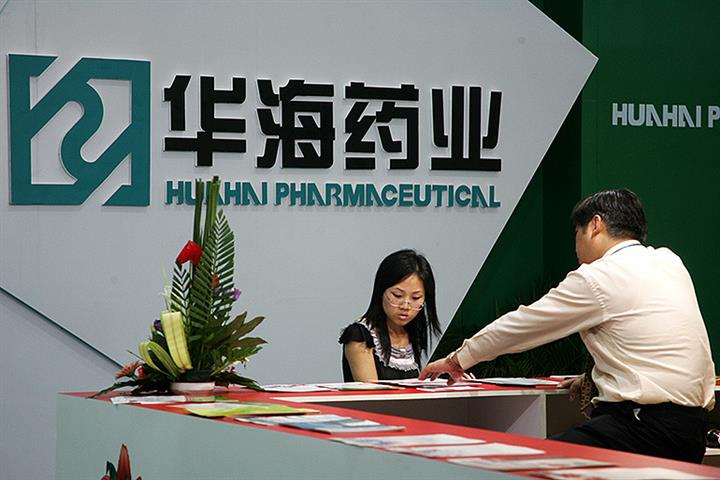 China’s Huahai Pharma Sinks After Sandoz Seeks USD115 Million in Compensation
China’s Huahai Pharma Sinks After Sandoz Seeks USD115 Million in Compensation(Yicai Global) May 14 -- Zhejiang Huahai Pharmaceutical’s stock price plunged today in the wake of the Chinese company’s announcement that Sandoz Pharmaceuticals has filed a USD115 million compensation claim after the carcinogenic impurity in its active pharmaceutical ingredients exceeded the set limit.
Shares of Huahai Pharmaceutical [SHA:600521] closed 8.1 percent lower at CNY26.93 (USD3.79) apiece, after earlier slumping almost 9.6 percent.
Sandoz, Huahai Pharmaceutical’s Swiss client, and six of its subsidiaries have filed an arbitration claim with the Chinese European Arbitration Centre in Hamburg, Germany, on the grounds that the carcinogenic impurity issue in the Chinese firm’s Valsartan, which is used to produce blood pressure-lowering drugs, had violated an agreement between the two parties, the Zhejiang-province based firm said in a statement last night.
The applicants stated in the arbitration claim that they have suffered around USD68.4 billion in direct and indirect losses because of the issue and sought about USD115 million in compensation not verified by a third party, the statement said.
The announcement did not contest the compensation amount, but recalled that the total sales of Valsartan to Sandoz and its affiliates were about USD5.31 million in 2017 and about USD6.73 million in the first half of 2018.
The firm has reached agreements on loss compensation with most of its clients except for Sandoz or made related arrangements according to the supply deals or laws since the issue came to light, the statement stated.
The European Medicines Agency announced in July 2018 that it had detected one impurity in Valsartan from Huahai Pharmaceutical likely to cause cancer and ordered a recall. Huahai Pharmaceutical later said that it would also recall related products in the US and China markets.
Of the 1,163 batches of hypotensor API Valsartan the firm produced and sold to Europe and the US between 2015 and 2018, just 27 batches, worth CNY9 million (USD1.3 million), contained the carcinogenic N-nitrosodiethylamine (NDEA) exceeding the acceptable limit, Huahai Pharmaceutical said in a statement in January last year. The firm finished rectification and related APIs re-gained export qualification to the European Union in October.
NDEA naturally exists in certain foods, drinking water, air pollution, and industrial production processes. The World Health Organization’s International Agency for Research on Cancer classified it as a Group 2A carcinogen. Group 2A carcinogens probably cause cancer in people based on limited evidence of carcinogenicity in humans and sufficient evidence of carcinogenicity in experimental animals.
Editor: Peter Thomas